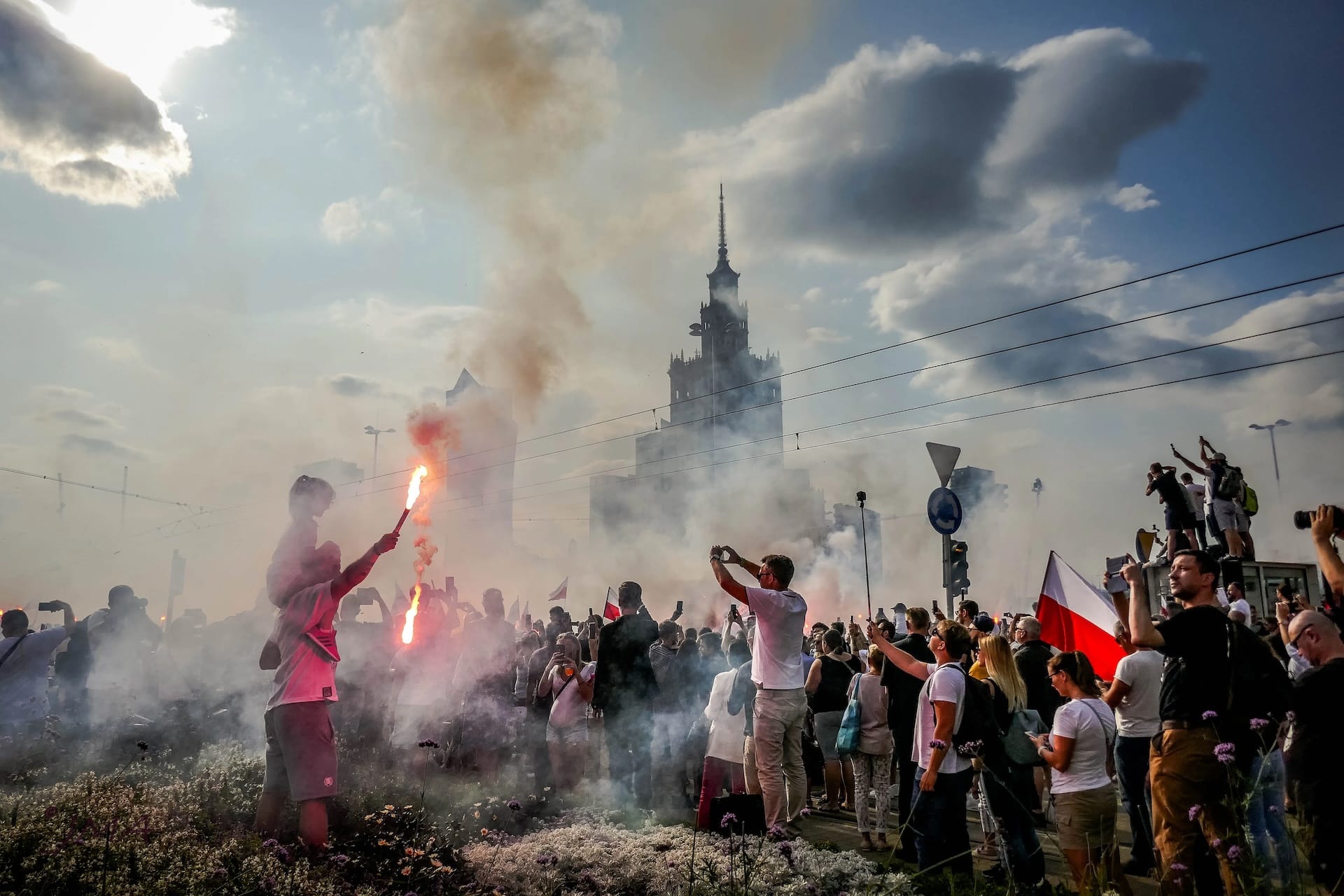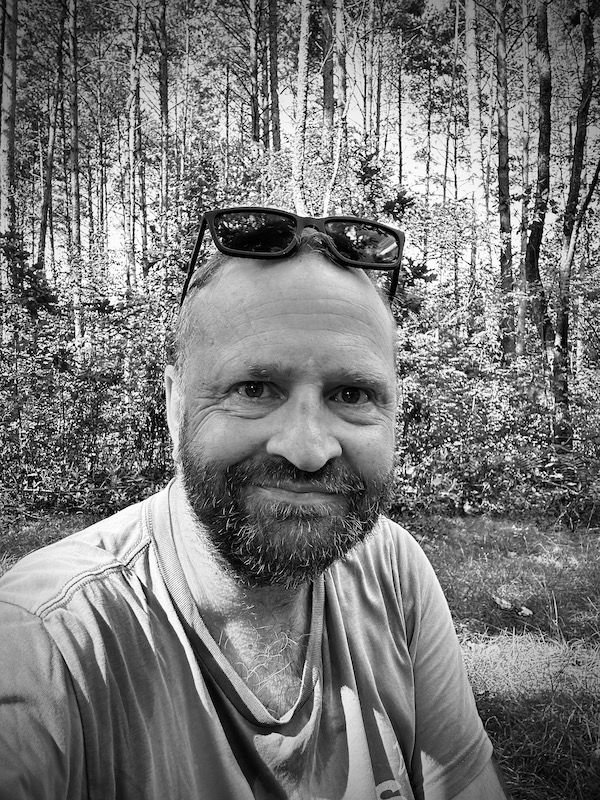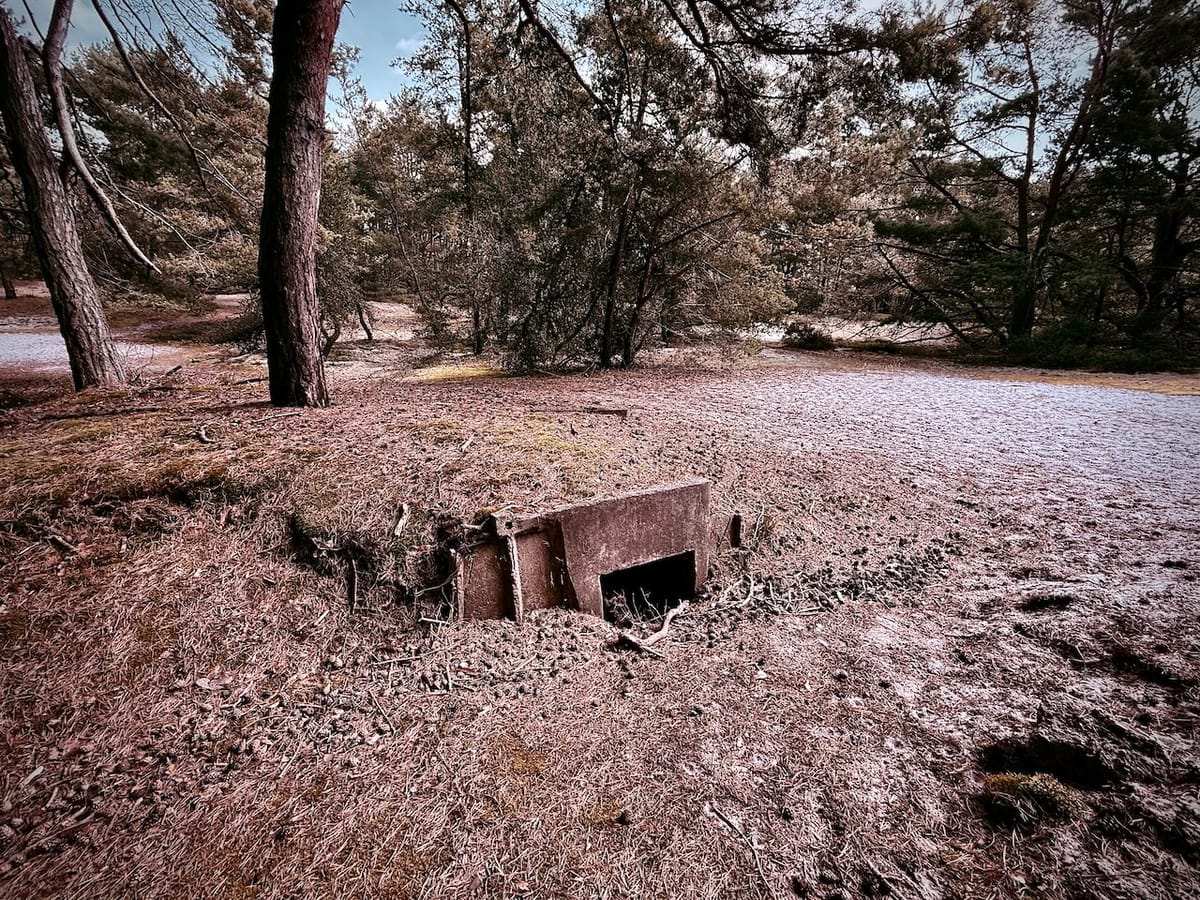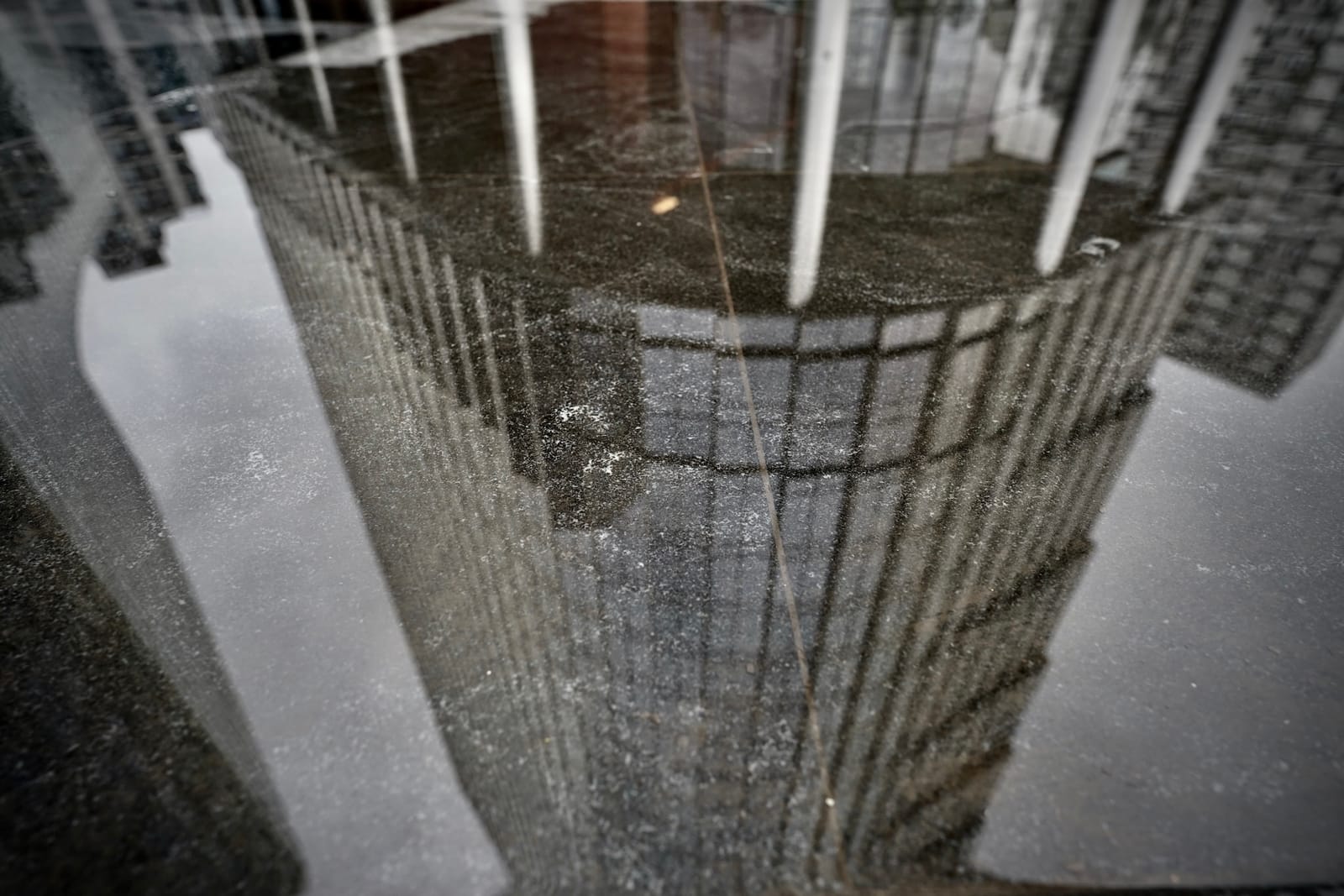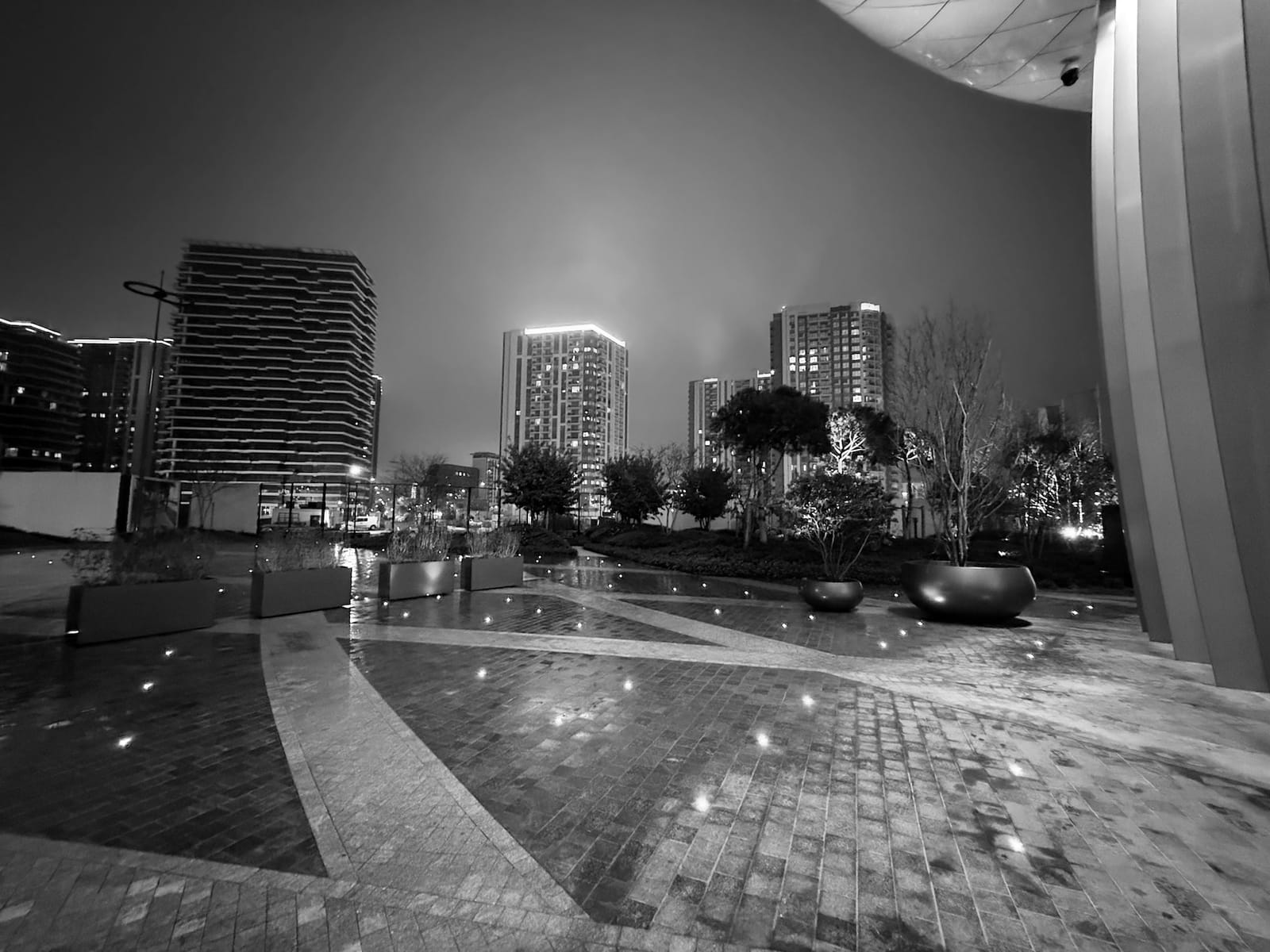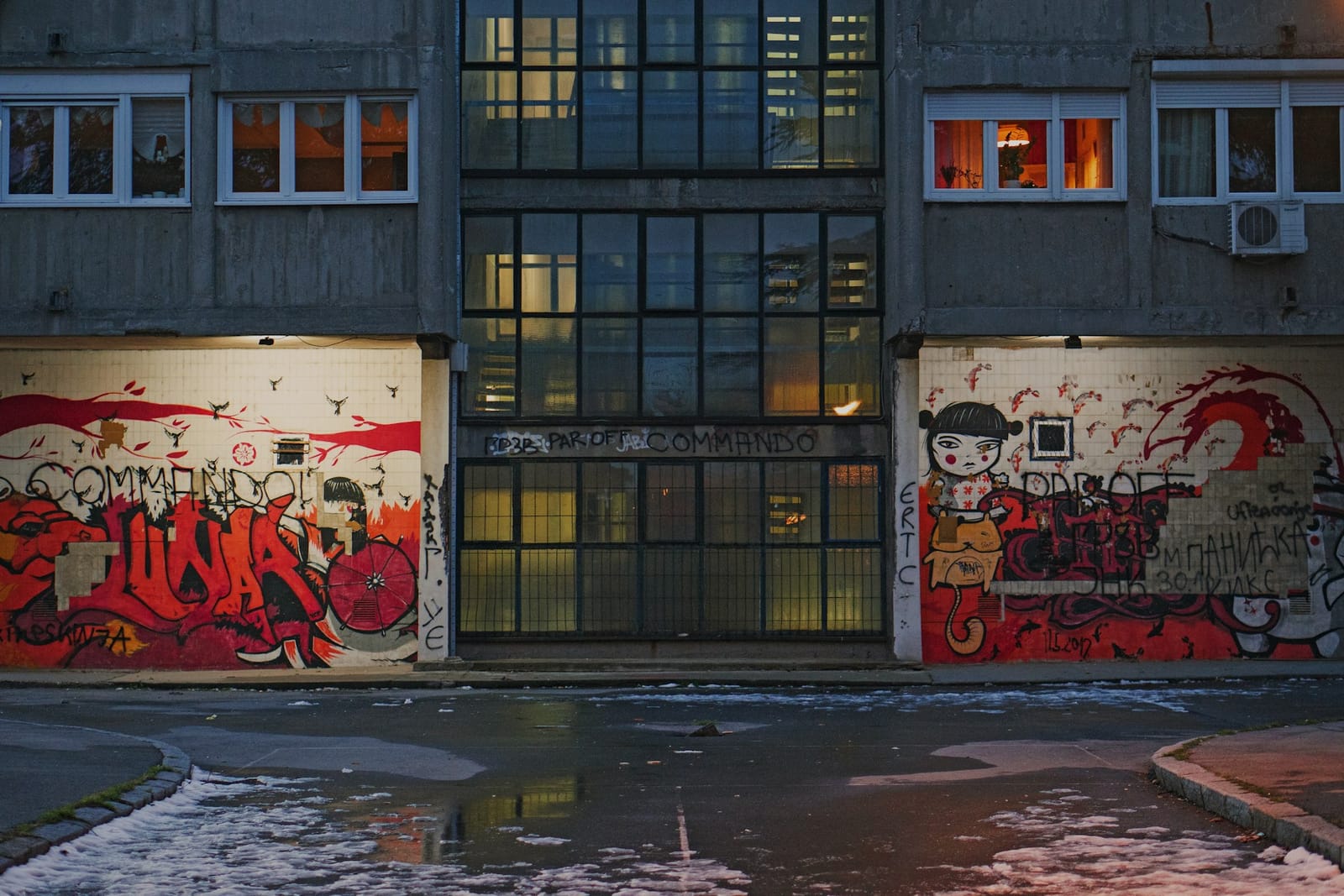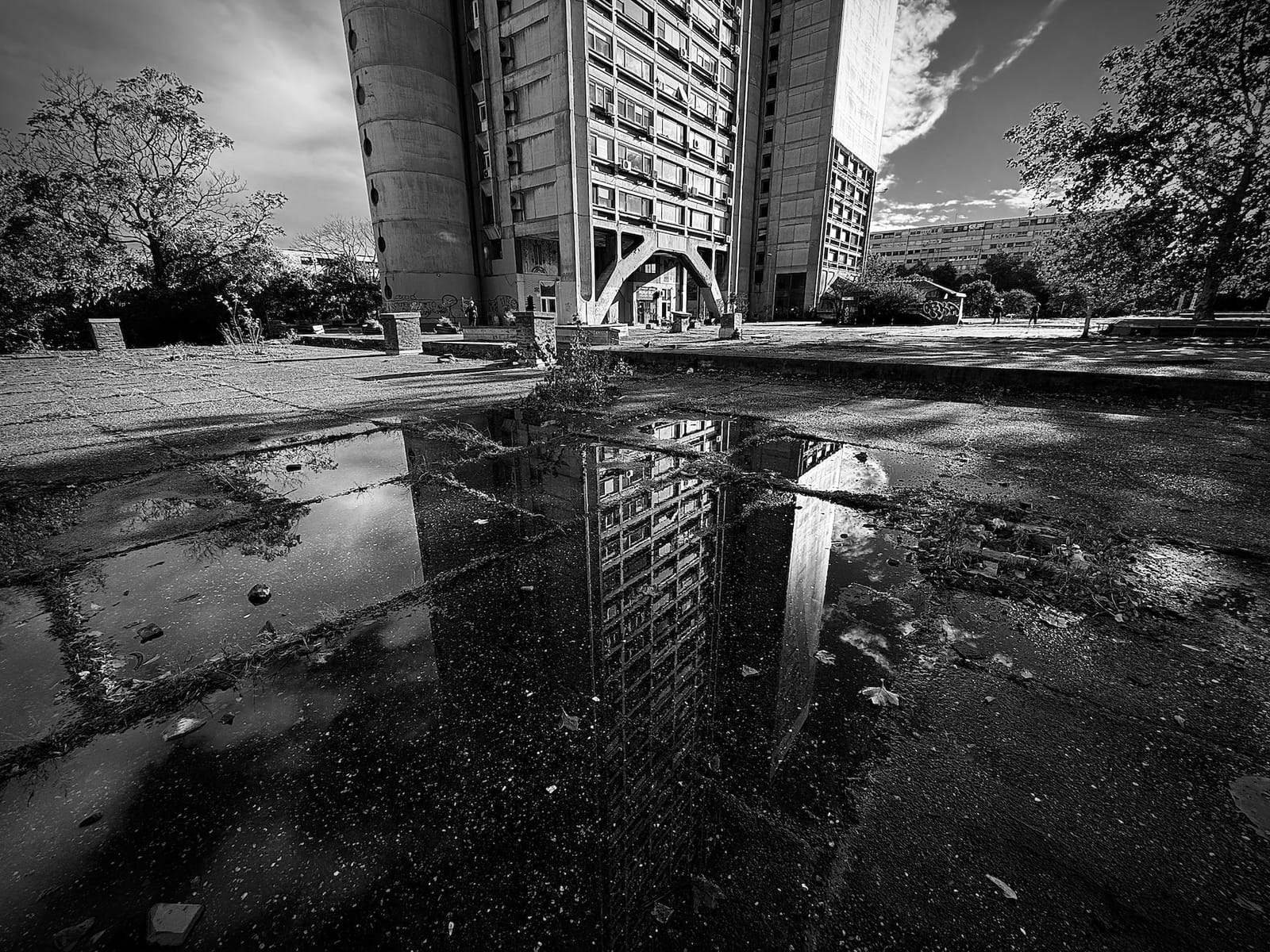At exactly 17:00 on August 1st every year, Warsaw stops.
Not metaphorically - literally.
Cars pull over mid-traffic. Pedestrians freeze mid-stride, mid-conversation, mid-breath. Construction workers on scaffolding become statues. Children in playgrounds suspend their games. Trams halt between stations. The city becomes a living monument, sixty-three thousand bodies transformed into vessels of remembrance, commemorating the Warsaw Uprising of 1944.
For one minute, the present submits entirely to the past.
Stop.
I had studied this moment for years, written about it, analysed its political implications and cultural significance. But standing in Plac Defilad as the sirens began, watching an entire city practice collective stillness, I realised how inadequate my academic understanding had been.
Knowledge, it turns out, is not the same as witnessing.
And witnessing is not the same as belonging.
Stop.
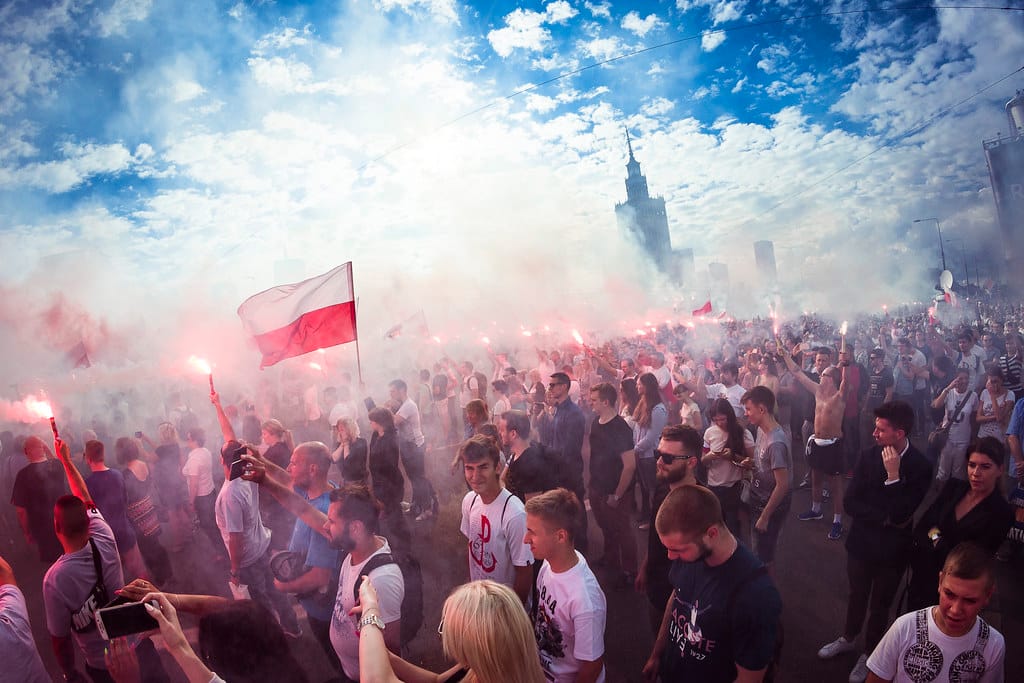
The Simulacrum of Memory
Jean Baudrillard wrote about simulacra - copies without originals, representations that become more real than the reality they claim to represent. W Hour exists in this strange space. The Warsaw that rises each August 1st at 17:00 is not the Warsaw that fell in 1944. The city was obliterated, its population murdered or expelled, its very geography rewritten. Today's Warsaw is, in my old friend Baudrillard's terms, a simulation of a city that no longer exists, populated largely by people who were never there.
"The simulacrum is never what hides the truth - it is truth that hides the fact that there is none. The simulacrum is true." - Jean Baudrillard
Yet watching teenagers pause their social scrolling to place hands over hearts, seeing grandmothers who remember only the communist reconstruction teaching children the proper posture of remembrance, I witnessed something more complex than mere simulation. This wasn't empty performance or nationalist theatre - though it contained elements of both. It was the strange alchemy by which collective trauma becomes collective identity, how a people choose to inherit wounds that aren't biologically theirs.
The woman standing next to me at one point, perfectly still, couldn't have been more than twenty-five. Her great-grandparents might have fled the city in 1944, or died in it, or never lived here at all. But for sixty seconds, she became a vessel for their memory - or the memory of what their memory might have been.
Stop.
The uprising happened to her as much as it happened to anyone still alive.
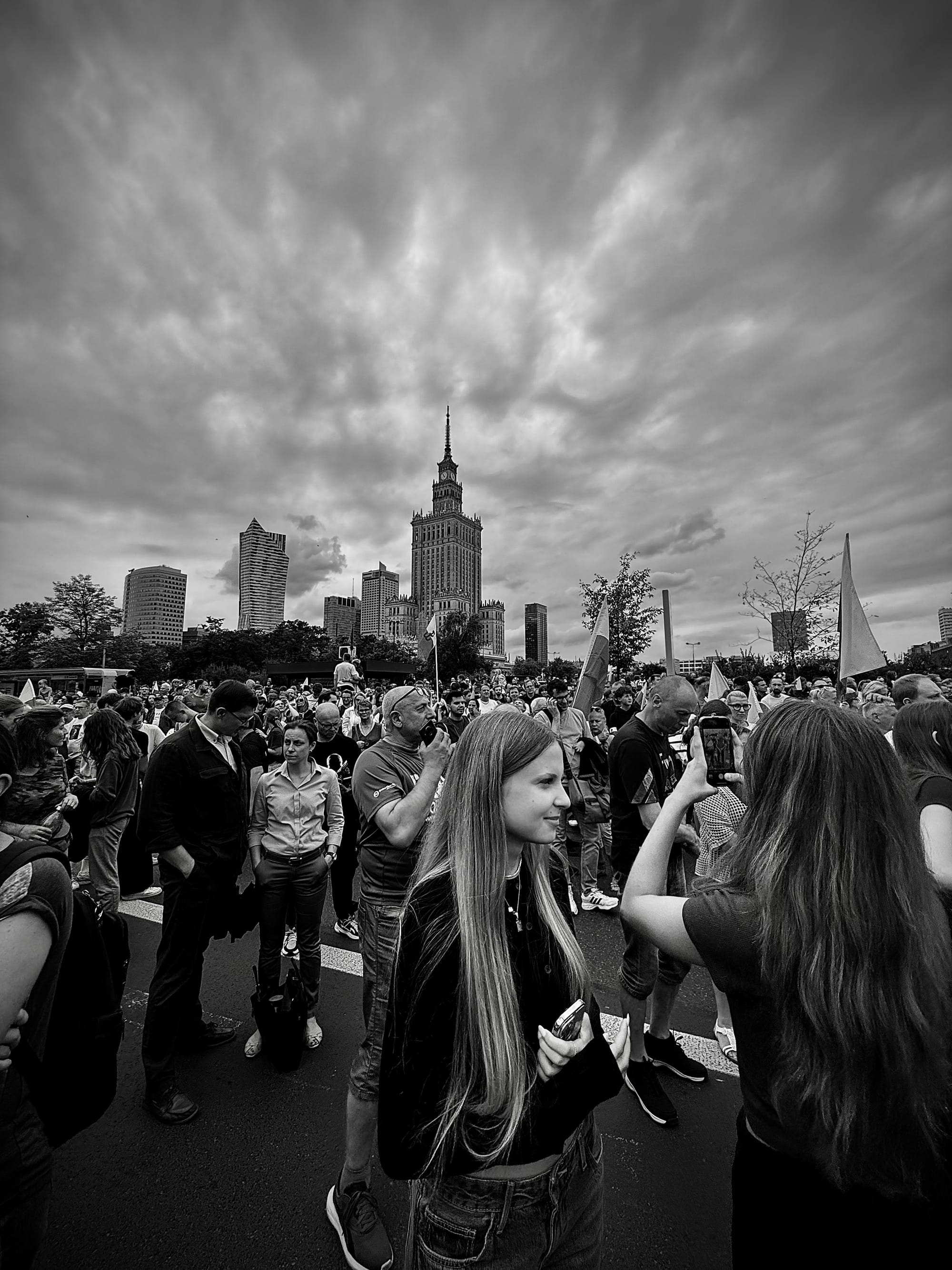
The Grammar of Displacement
I moved to Warsaw a little over a month ago, another migration in a lifetime of migrations. Like most contemporary displacements, mine was voluntary, privileged, motivated by opportunity rather than necessity. Yet standing in that minute of silence, I felt the particular weight that comes with loving a place whose deepest stories you can only approach as an outsider.
Home, I've learned, isn't just about comfort or familiarity. It's about the right to grieve collectively, to share in the particular sorrow that shapes a place. During W Hour, I experienced a kind of temporal vertigo - simultaneously insider and outsider, participant and observer, belonging and not belonging. I probably knew the historical facts better than many around me, had read the testimonies, studied the maps of the destroyed city. But I couldn't feel the inheritance in my bones the way they could.
This displacement - physical, temporal, emotional - reveals something fundamental about contemporary existence. We live increasingly in what Fredric Jameson called "perpetual present," where historical depth gives way to surface, where we consume images of the past without necessarily inheriting its weight. Yet W Hour suggests something more complex: a deliberate resistance to that flattening, an insistence that some things must be carried forward even by those who weren't there to lift them initially.
This is the paradox of contemporary belonging: we live in cities we didn't build, among people whose traumas we study but don't carry. We learn the gestures of home without inheriting the muscle memory that makes them meaningful. Yet somehow, in the learning, in the trying, in the conscious choice to honour what came before, something like belonging begins.
The War Next Door
The cruel irony wasn't lost on anyone that as Warsaw commemorated its eighty-one-year-old uprising, another European city was fighting for its survival in real time. Kyiv, Mariupol, Kharkiv - cities experiencing the kind of destruction that Warsaw underwent in 1944, cities that might one day have their own moments of collective remembrance, their own rituals of inherited trauma.
During W Hour, I thought about the refugees I'd met in Warsaw's train stations a little over three years ago - Ukrainians who had fled a war that looked remarkably like the one being commemorated. History wasn't just being remembered; it was being repeated, with slight variations, one country away to the east. The simulation and the real collapsed into each other with uncomfortable precision.
What does it mean to mourn the past while the present burns? How do you honour memory when memory is still being made?
Stop.
The Ukrainian families now living in Warsaw will watch future W Hours with a different kind of understanding - not just as witnesses to Polish history, but as carriers of their own parallel trauma. They will teach their children to stand still for Warsaw's minute, while privately carrying the sirens that sent them fleeing from their own cities.
The Architecture of Aftermath
Walking through Warsaw after W Hour, I tried to see the city as the palimpsest it actually is - layers of destruction and reconstruction, memory and forgetting, authentic history and necessary myth. The Old Town, meticulously rebuilt from paintings and photographs, is perhaps the most honest architectural simulacrum in Europe. It announces its own artifice while insisting on its emotional truth.
This is what postwar cities do: they create the past they need in order to have a future. The Warsaw I'm learning to call home is a collective decision, a shared agreement that certain things matter enough to rebuild, to remember, to pass down. The stones may be new, but the gesture of placing them is ancient.
Standing in Krakowskie Przedmieście after the sirens ended, watching normal life resume - buses running, conversations starting, the ordinary rhythm of a Friday evening - I understood something about the architecture of home. It's not built from continuity but from the decision to continue. Not from unbroken tradition but from the deliberate choice to honour what was broken.
French philosopher Michel de Certeau wrote about the "practice of everyday life" - how ordinary actions become acts of resistance, how walking through a city creates meaning independent of urban planners' intentions. W Hour represents something similar: a collective practice that transforms space through repetition, that makes memory tangible through the simple act of stopping.
"The place where we live is not a place imposed on us by others but one we make for ourselves." - Michel de Certeau
In the minutes following W Hour, as Warsaw returned to its ordinary rhythms, I watched this practice in action. People didn't disperse dramatically or linger in contemplation - they simply continued with their evening. The power lay not in the rupture but in the return, not in the extraordinary nature of the moment but in its integration into the texture of regular life.
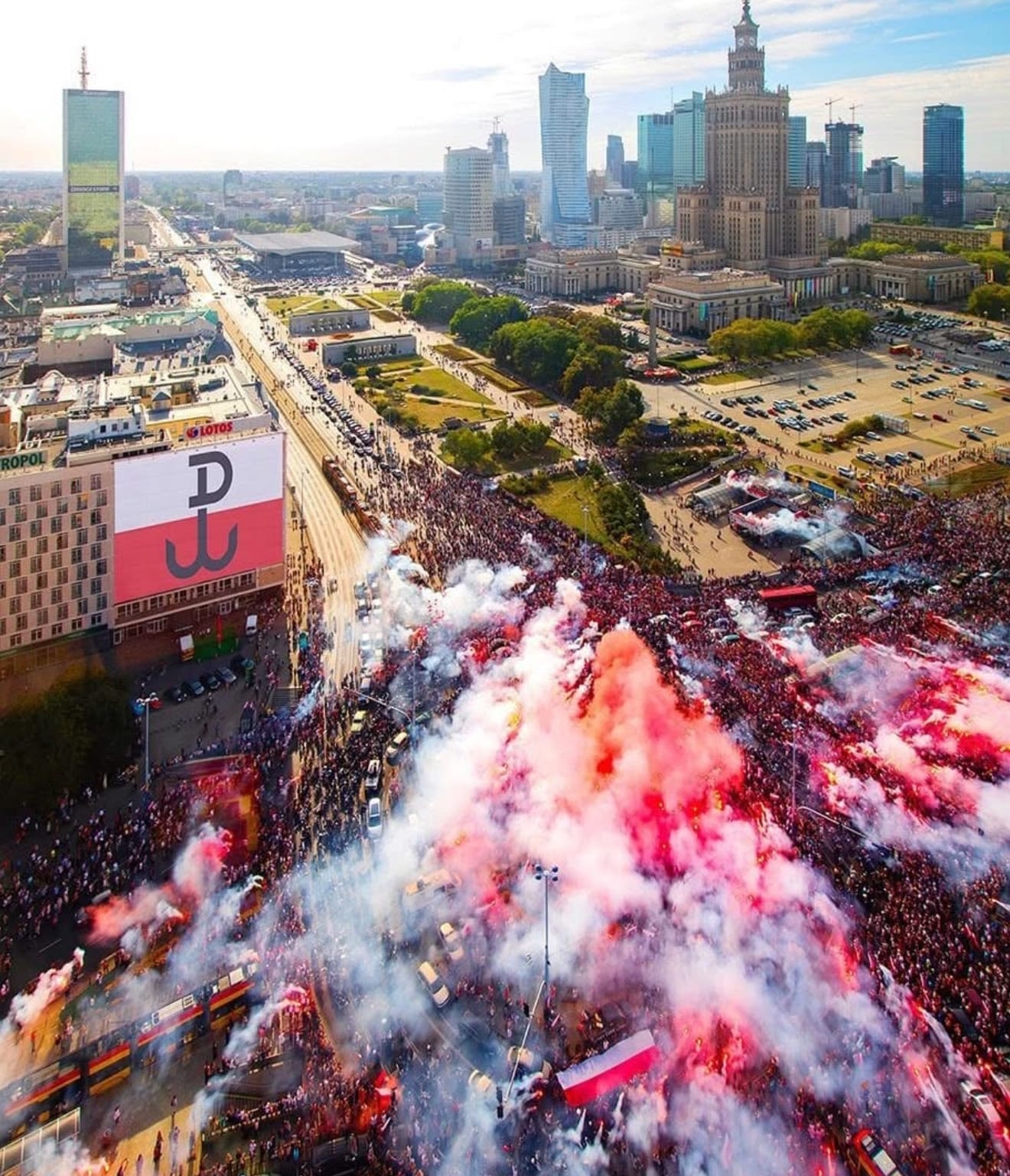
Learning the Language
Home, I'm beginning to understand, isn't something you find - it's something you practice. Like learning a new language, you start with awkward translations, literal interpretations, the stilted grammar of the outsider. But gradually, if you pay attention, if you listen more than you speak, something shifts. You begin to feel the rhythm beneath the words, the emotional logic that makes the strange familiar.
During my first W Hour, I was translating - matching my academic knowledge to the lived experience, trying to understand what I was seeing. But somewhere in that minute of stillness, surrounded by a city's worth of strangers sharing the same silence, I stopped analysing and started participating. Not as a Pole, not as someone with inherited claim to this particular grief, but as someone choosing to honour it anyway.
The experience revealed something about how identity and belonging function in our hyperconnected yet fragmented world. Rather than being fixed categories determined by birth or blood, they become performances we choose to inhabit, stories we decide to carry forward. In this sense, W Hour operates as what Judith Butler might call a "performative act"—not merely expressing identity but actively creating it through repetition.
"Identity is performatively constituted by the very 'expressions' that are said to be its results." - Judith Butler
This performativity doesn't make the experience less authentic - if anything, it makes it more so. The choice to participate, to learn the gestures, to honour someone else's trauma, becomes its own form of belonging. Not automatic or inherited, but deliberate and earned.
This is perhaps what belonging looks like in our age of constant movement: not the accident of birth but the intention of respect, not the given but the chosen, not the automatic but the learned. Home becomes less about where you're from and more about where you decide to stand still, where you choose to let someone else's memory become part of your own careful keeping.
The postmodern condition, as theorists have long argued, is characterised by rootlessness, surface over depth, the collapse of grand narratives. We live, according to this diagnosis, in an age of simulation without originals, where meaning becomes increasingly elusive and identity fractures into performance. The grand project of modernity - progress, reason, the coherent self - has dissolved into fragments, leaving us navigating a world where everything solid melts into air.
But what happens when an entire city chooses to stop?
W Hour represents something that shouldn't exist in postmodern terms: a moment of collective meaning that resists fragmentation, a shared narrative that refuses to collapse, a ritual that transforms individual bodies into a unified statement. It operates outside the logic of consumer capitalism, where time is money and motion is profit. For sixty seconds, Warsaw rejects the hyperkinetic pace of contemporary life and chooses instead something that looks suspiciously like transcendence.
This stopping - this collective refusal to participate in the forward momentum of ordinary time - reveals the fault lines in postmodern theory itself. Critics like Jean-François Lyotard proclaimed the end of meta-narratives, the grand stories that once gave societies coherence and direction. Yet here was a meta-narrative in action: the story of resistance, of sacrifice, of memory as responsibility. Not imposed from above by institutions or ideologies, but chosen from below by people who had never lived through what they were commemorating.
The paradox deepens when you consider that this collective memory is itself a kind of construction, a careful curation of which parts of the past matter and how they should be remembered. The Warsaw Uprising was complex, politically fraught, strategically questionable. The post-war communist government suppressed its memory for decades. The current narrative - heroic resistance against fascist occupation - flattens a more complicated historical reality. Yet somehow, in that moment of stopping, none of this mattered. The constructed nature of the memory didn't diminish its power; if anything, it amplified it.
I suppose this suggests something crucial about how meaning operates in our supposedly post-truth era. Perhaps the problem isn't that we live in a world of simulations, but that we've forgotten how to invest those simulations with genuine significance. W Hour demonstrates that authenticity isn't about accessing some pure, unmediated reality - it's about the collective decision to make something matter, to choose depth over surface, to insist that some things are worth stopping for.
Stop.
The very act of stopping becomes a form of resistance to what Jameson called the "perpetual present" of late capitalism - that flattening of historical consciousness where everything becomes contemporary, consumable, equivalent. In stopping, Warsaw refuses this equivalence. It insists that August 1, 1944 is not just another date, that the uprising is not just another historical event, that memory is not just another commodity.
Yet this resistance operates through distinctly postmodern means: performance, repetition, the conscious construction of meaning through collective practice. Butler's theory of performativity - the idea that identity is created through repeated acts rather than expressed by them - applies not just to individual identity but to collective memory. Warsaw's identity as a city of resistance isn't discovered through historical excavation; it's created anew each August 1st at 17:00, through the simple but profound act of standing still.
When the sirens stopped and Warsaw came back to life, I meandered home through streets I'm still learning to navigate, carrying a story that isn't mine but that I'm slowly learning how to hold. In twelve months time, I'll stand still again, a little less foreign, a little more fluent in the grammar of this place I'm choosing to call home.
The simulacrum, through repetition and intention, becomes real enough to live in.
Stop.
That, I'd suggest, is the most human thing of all: our capacity to make meaning from copies, to find home in translation, to inherit what was never ours and pass it on anyway. Warsaw is teaching me that memory isn't about ownership - it's about stewardship. And sometimes, the most profound way to honour a place is to admit how much you still don't understand while committing to stand still and listen anyway.
In our age of constant motion, of restless scrolling and endless stimulation, the radical act is learning how to stop. Not just to pause or slow down, but to stop completely. To let the weight of someone else's history settle into your bones. To discover that home isn't where you're from, but where you're willing to stand still long enough to let the past catch up with the present.
Stop.
